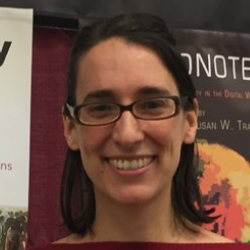Defeated Revolutionaries, Lasting Legacies: The Afterlife of Revolution in Dhufar, Oman (Alice Wilson)

When:
Monday, November 18, 2019
12:00 PM - 1:30 PM CT
Where: Kresge Hall, Room 1-515 (The Forum), 1880 Campus Drive, Evanston, IL 60208 map it
Audience: Faculty/Staff - Student - Post Docs/Docs - Graduate Students
Contact:
Danny Postel
danny.postel@northwestern.edu
Group: Middle East and North African Studies
Co-Sponsor:
Anthropology Department
Category: Lectures & Meetings
Description:
Post-conflict authoritarian states often rely on patronage and repression as strategies to quell dissent and to win hearts and minds. Gulf monarchies have relied on these tactics in the Arab Spring, and in facing earlier generations of insurgents including during Oman’s war against Dhufar’s revolutionaries (1965-1975). Re-examination of the everyday lives of ex-revolutionaries in Dhufar nevertheless suggests how, 40 years after defeat, some ex-militants and relatives use kinship and mundane socialising to reproduce revolutionary networks and values of social egalitarianism. This social “afterlife” of defeated revolution points towards a counter-history of vanquished revolutionaries: this afterlife highlights limitations of post-conflict patronage to win and change hearts and minds, and the potential of family relations during and after revolution to challenge dominant norms.
Alice Wilson is Senior Lecturer in Social Anthropology at the University of Sussex, UK. Her research interests span political and economic anthropology, with a particular interest in radical projects for social change, such as revolutions and liberation movements. Her geographical focus is on the Middle East and North Africa. Her first book, Sovereignty in Exile: A Saharan Liberation Movement Governs (2016), charts experiments in sovereignty and revolutionary state power in the case of the liberation movement from the disputed territory of Western Sahara in north-west Africa. It won Honorable Mention in the 2017 book award of the Middle East Section of the American Anthropological Association. In her current research, Wilson examines legacies of the former liberation movement in Dhufar, southern Oman.